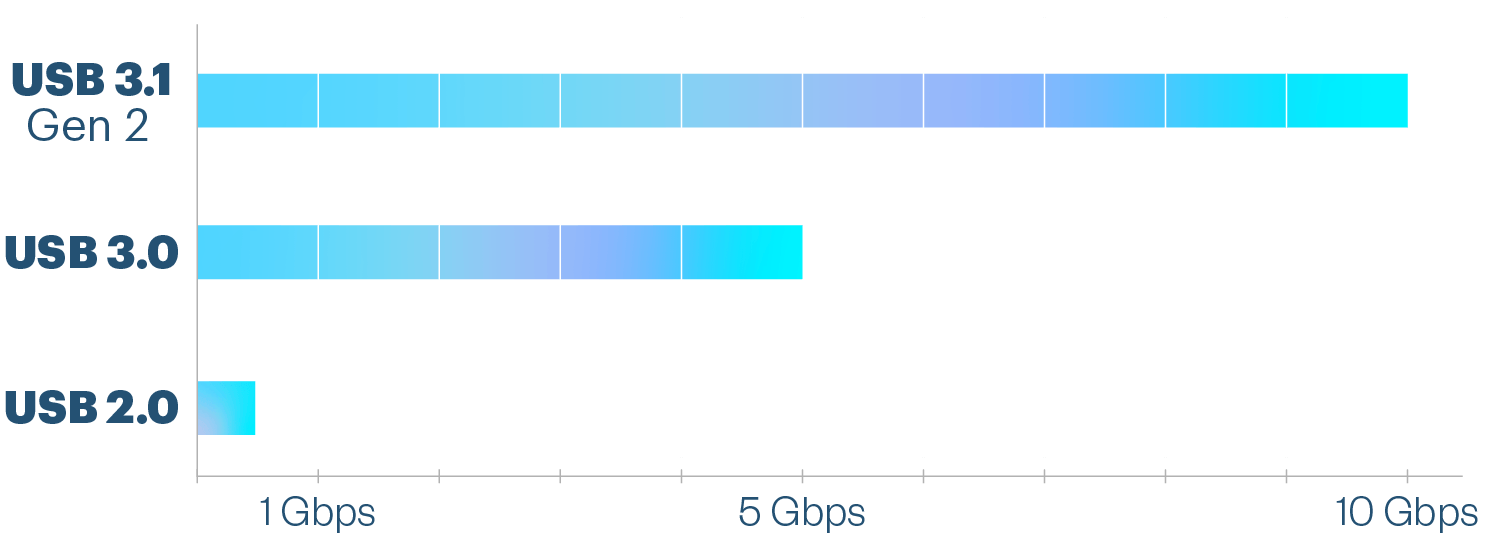Standards:
USB 2.0 Hubs
USB 3.0 (3.2 Gen 1) Hubs
USB 3.2 Gen 2 Hubs
USB Type-C Hubs
Reach out for technical support or sales inquiries and you’ll find yourself in the hands of a solution-oriented and knowledgeable expert ready to answer whatever question you throw at them.

The protocols in current use are USB 2.0, 3.0, and 3.1. Earlier versions are obsolete. Each version is fully compatible with earlier versions; a USB 3.1 hub can communicate with a 2.0 device, though it will be limited to 2.0 data rates. Each protocol supports more than one speed, including all the ones earlier versions support. The maximum speeds are can be seen here.

The USB-C standard bridges the gap between what was USB 3.0, to the new renamed USB 3.1 Generation 1 and 2. Gen 1 of USB 3.1 supports up to 5 Gbps data transmission speed while Gen 2 supports up to 10 Gbps. Both generations of USB 3.1 are backwards compatible to earlier versions of USB, but speed is fully dependent upon the USB version of the connected device.
Compatibility runs in both directions. You can use a USB 3.1 drive with a computer that supports only 2.0, or the other way around. Of course, you’ll only get USB 2.0 speeds in either case. You should get a hub which supports a protocol version at least as high as the computer you’ll use it with.
USB Type C or USB-C is the newest USB interface to come to the market along with USB 3.1. USB Type C connectors can be plugged into any USB-C device on either end because of a reversible design.
What is usb-c?